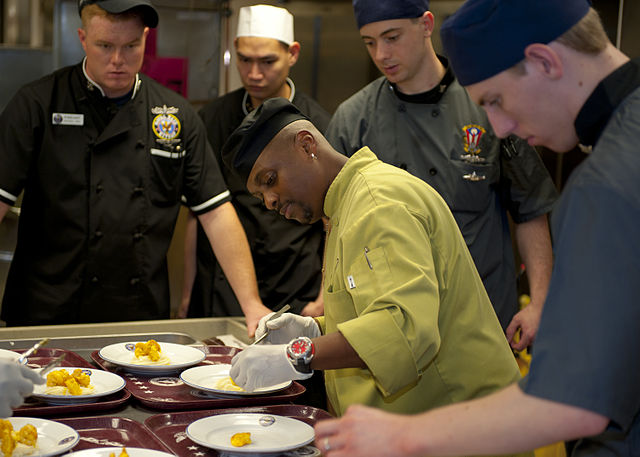Employer Sponsored
Chef Addition to Skilled Occupation List Signals Economic Growth
9 Jul 2014 / Amanda Wu

Chef Addition to Skilled Occupation List Signals Economic Growth
With restaurant and takeaway food venue growth expected to increase by more than 8 percent over the next three years, Restaurant & Catering Australia has successfully lobbied to get chefs added to the country’s Skilled Occupation List (SOL) as of July 1. John Hart, CEO of Restaurant & Catering Australia, echoed the relief felt by many in the hospitality industry who are experiencing chronic shortages of well-trained and experienced chefs, restaurant and café managers, waiters and kitchen helpers.
The inclusion of chefs on the Skilled Occupation List, currently highlighting 188 occupations that the Australian economy has the greatest need for, means that foreign workers who have hospitality industry experience can now apply for a permanent Australian work visa without having to first obtain a sponsor. The good news about including chefs on the SOL coincided with an announcement by Australia’s federal government that it would be simultaneously evaluating the current 457 temporary work visa program and its effectiveness in helping to solve the nation’s ongoing labour shortages as they affect the hospitality industry. Many critics of the 457 temporary work visa program contend that the program as it is currently designed tends to punish workers and make employers feel handicapped rather than empowered when it comes to finding qualified staff for their restaurant and foodservice operations.
According to a Benchmarking Survey conducted in 2014 by Restaurant & Catering Australia, slightly more than three out of every five hospitality businesses experience staff vacancies of 22.3 percent on an ongoing basis. According to the survey, employers indicated that chefs, restaurant managers and cooks were the three job listings that they found were the most difficult to fill with experienced personnel.
Notes Michaelia Cash, Assistant Minister for Immigration and Border Protection, the recent addition of chefs to the Skilled Occupation List will offer business owners greater flexibility in recruiting and hiring professionally trained chefs from overseas markets when they are faced with not being able to find suitable trained chefs in their own local markets. Cash reports that this change in status will be especially welcomed by restaurants and cafes operating in regional areas where a dearth of skilled workers has been obvious for quite some time.
In addition to chefs, tilers and bricklayers have also become the most recent occupations added to the SOL. Recommendations for SOL additions are based on the current labour market, as well as economic, migration, training and demographic data and is an attempt by Australia’s government to address the country’s always changing skills needs in order to keep the economy balanced and healthy.
There are some, however, who are voicing their displeasure at the recent addition of chefs to the Skilled Occupation List. One such group is United Voice, the hospitality trade union, which insists that no shortage of skilled chefs actually exists in Australia. Union officials say that the problem of finding qualified chefs is related to sub-standard wages as well as high turnover rather than a shortage of qualified personnel to fill key positions. Says the union’s national secretary, David O’Byrne, the problem that needs to be addressed is the hospitality industry’s inability to retain well-qualified chefs in Australia once they have been hired.





